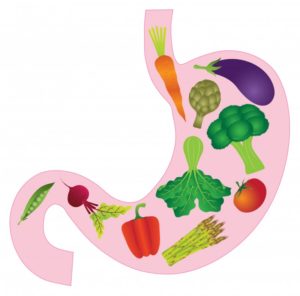How Oral Hygiene Can Affect Your Metabolism
People often believe dental issues don’t influence other parts of the body. For example, you might believe that a tooth problem has nothing to do with your heart, or that a gum infection is completely unrelated to your eyes. What happens in your mouth stays there, right?
As it turns out, though, oral hygiene has a strong impact on the body’s metabolic health — for better and for worse. To prove it, here’s a guide to dental health’s influence on metabolism from Houston’s resident dentist.

What Is Metabolic Syndrome?
“Metabolic syndrome” is a grouping of conditions that occur together, increasing your risk for heart disease, stroke, and type 2 diabetes. These associated conditions include increased blood pressure, high blood sugar, excess body fat, abnormal cholesterol, and so on. While having one of these conditions doesn’t mean you have metabolic syndrome, it does increase the likelihood of contracting serious disease.
Metabolic syndrome stems from obesity-related insulin resistance. Due to said resistance, the body’s blood sugar levels will rise drastically, causing a huge range of systemic health issues. Otherwise, previous disease, ethnicity, and age also influence one’s risk for the syndrome.
How Is Metabolic Syndrome Related to Oral Hygiene?
As of now, a growing body of evidence points to a link between oral inflammation and metabolic syndrome.
Specifically, periodontitis — or advanced gum disease — has been discovered to be a significant risk factor for it. Researchers have concluded that gum disease causes skeletal muscle metabolic dysfunction, the precursor to metabolic syndrome, by altering gut bacteria. As your physical health benefits from the micro-organisms in your stomach, gum disease brings drastic changes to said organisms that can cause metabolic syndrome, damaging the body’s metabolism.
Preventing and treating gum disease is core to your oral health. Done through regular dental visits and self-care, good oral hygiene keeps the risk of gum disease to a minimum. Therefore, by tending to your dental issues, you benefit not only your mouth but your whole body.
Talk to Your Dentist
Your dentist can help you take steps to ensure that your oral health doesn’t negatively affect your metabolism, such as:
- Teach you more about how oral health can affect the rest of your body. A dentist will have details on how dental problems can increase the risk for major health conditions, including heart disease and stroke.
- Take your blood pressure reading at the beginning of each dental appointment. Many only visit the doctor when they’re already sick, and that can affect blood pressure. By getting your blood pressure taken each appointment, you and your dentist gain valuable information about your baseline reading and learn if it’s crept up over the last six months.
- Offer testing for oral bacteria that might include problematic strains. Certain strains of bacteria—for instance, Streptococcus tigurinus—are linked to an increased risk for heart attacks and other cardiovascular issues. Testing for these strains will allow you to improve your oral microbiome and reduce your risks.
Oral health connects to all of the body’s systems, including your metabolism. That said, care for your smile so your whole body will reap the rewards!
About the Author
Dr. Mark Gray is a cosmetic and family dentist practicing in Houston, TX, having earned his Doctorate of Dental Surgery (DDS) from the University of Texas Dental School. He pursues continuing education with the Spear Education Group, in which he is a Faculty Club Member. Belonging to the American Dental Association, Texas Dental Association, and the Greater Houston Dental Society, he truly believes in the power of giving patients winning smiles. He currently practices at his clinic and can be reached at his website or by phone at 281-493-9395.


